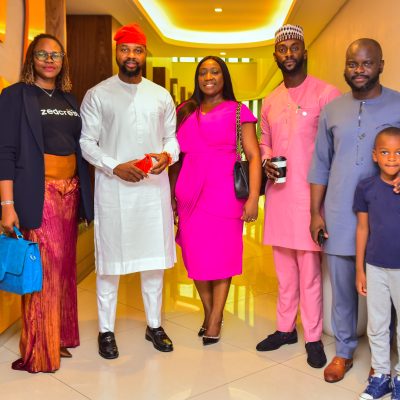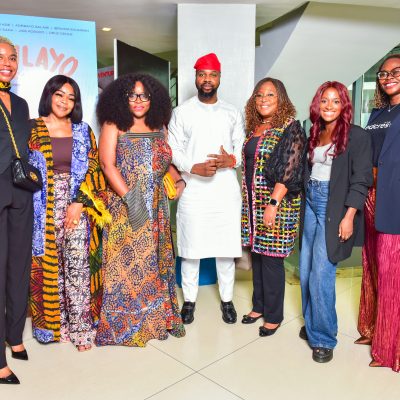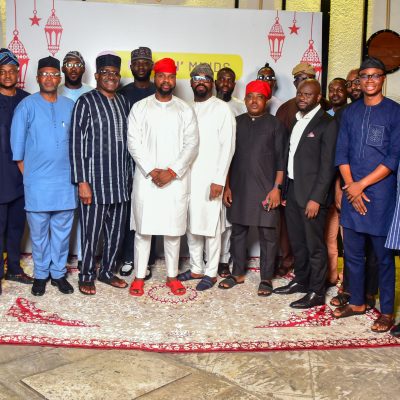From Guardian Nigeria
Perhaps, nothing best defines 21st century civilization than the revolutionary world-wide-web or internet, with its incomparable strands of communication platforms – Facebook, Twitter and Instagram otherwise known as social media.
These tools have equipped modern man more than any age to instantly communicate and receive feedback even from individuals in far-flung places with nothing in common except the need to communicate or ventilate even if it’s gibberish.
In fact, nothing describes or gives immediacy to democracy than social media where everyman has a right to have his say and get a response.
Corporate entities have also latched onto social media revolutionary tool to advance businesses, sell products and services and reach buyers from across many distances. But social media isn’t always a harmless tool.
As much as it directs favourable traffic so also does it also direct negative, harmful traffic capable of causing ruination in the fortunes of any corporate entity that takes social media tool for granted.
It’s uncontrolled, unrestrained nature, unlike the traditional media (newspapers, TV and radio), makes it all the more dangerous and is why companies are being advised to keep a keen eye on what happens on social media for continued business health.
What social media could do to the fortunes of companies formed the fulcrum of discussion last week in Lagos when GE (General Electric) hosted a social media forum and had a wide range of businesses in attendance. With the theme ‘From Tweet-dreams to Online Nightmares…’, and social media savvy discussants as Toni Kan of Radi8 PR firm as moderator, Chude Jideonwo of Red Media and handler of Gen. Muhammadu Buhari’s social media campaign efforts and journalist and social media wonk, Tolu Ogunlesi.
While declaring the forum open, GE Director of Communication, Sub-Sahara Africa, Patricia Obozuwa, said the forum was the first in a series that would be organised to place GE’s customer, as the core of their business success rather than attributing it to the expertise of sales or marketing people.
She said there was a need to “step back and determine the communication value orientation about our customers.
If we know what customers want then we will be better placed to create a platform for sharing and communicating. That is why we brought Kan, Jideonwo and Ogunlesi to help us in the sharing of knowledge. If we create value for our customers, we create value for ourselves and Nigeria, ultimately”.
In giving background to the dilemma companies face with the advent of social media, Jideonwo noted that crises resolution had become an endless nightmare where losing ground was now so surreal. He added that a company’s hard earned reputation over the years could go up in smoke with a mere 140-word Tweet, “Welcome to the age of 140-word branding where you depend on only 140 words. Now, this is such a beautiful mess; it’s all a mess”.
He described internet as a disintermediation medium capable of disrupting lives and businesses in scales unknown before. He asked, “How do we adapt to social media? How are customers adapting, managing this social media? There are all kinds of things that happen on social media. These days, companies don’t even know where to go or how to start. There no is proportion any more. Uber (which has no single taxi but runs taxi business all over the world) even has to hire a company to manage its social media. Inevitably, perception problems occur.
The problem is not that there are no problems, but how fast you respond to them. Unfortunately, social media has no space for proportion or reasonableness as was the case with OXL and the maid that sold the Adekoyas’ children. OXL kept quiet for too long; they should have spoken up early. On social media people don’t care whether you’re right or wrong. It’s about our humanity. Do you care enough? Do you take a measure of responsibility, which brands need to do even on social media, they need to work better to overcome wrong”.
He said a legitimate solution would be for a company not to have its presence online, but “what a company mustn’t do is to ignore social media issues when they crop up. You don’t ignore audiences on social media; it’s a bad narrative. Your social capital could be badly damaged. Social media is a double-edged sword”.
Toni Kan said companies needed to literally equate social media to a terminal disease or virus, which, when it went viral, would ultimately terminate the life of a company. “When something goes viral that means serious terminal disease, as it happens to a person or company,” he stated.
Ogunlesi said he pays a lot of attention to what governments, companies and individuals do on social media, adding that social media it had given a lot of power to companies who otherwise would have had to pay a lot to traditional media.
He, however, noted that many companies in Nigeria were still vague about what the power of social media really was and were yet to tap its full potentials.
Jideonwo then advised company bosses to take social media seriously, “If possible, get some social media savvy guys into the boardroom when executive decisions are taken”.
Ogunlesi and Jideonwo said the advent of social media has made it imperative for companies not to keep mum when issues involving their operations crop up. Now was the time to speak up as against when traditional media was the only option and they could ignore complaints, but not anymore.
For Ogunlesi, “What social media demands is absolute humility, as it can’t be controlled and your big budget can’t help you when something bad breaks about your company. It’s response that matters. Companies should have social media policies. If something happens, what should we do? Many Nigerian companies are not social media conscious and not sure what to do when things happen”.
Also for Jideonwo, “Nigerian companies need to make the inevitable decisions. People need to understand the power of new media platforms. Minister of Niger Delta Affairs Godsday Orubebe came to social media to apologise after his outburst during the declaration of presidential election results. Companies should go to church first and not allow problems to get them to church…”
On whether social media is evil, Jideonwo said the forum was ample evidence that social media issues were real enough to cause concerns. He also noted that business was not all about balance sheets and profits, but the need to enhance social capital, adding, “Those that will define your social media capital are your customers. Customers buying your products are making judgment about your activities. You can’t ignore social media; things end up affecting your bottom line. A time will come when people will be held accountable for their activities”.
Ogunlesi asked, “Why do or should you care? It’s because your competitor cares. If your competitor is on social media then you should be there, too. The fact that social media can be used to fight you or demarket you demands your presence should be there. There are more and more CEOs on social media these days; they just want to be aware what is going on. At the end of the day, it’s about people. Once upon a time there was certainty, but not now anymore”.
They spoke about how internet was increasingly migrating to the mobile from the desktop computer. For Ogunlesi, “More and more people are going mobile and social media fitting mobile are now rife. And since more people work on their mobile, security of mobiles will be a big issue in time. So how do you secure your work on mobile”.
Jideonwo and Ogunlesi noted that some elements of control was beginning to be exerted on social media, especially bloggers whose blogs could be pulled down, as it recently happened to Linda Ikeji, when an offensive, unsubstantiated material was put out. “If blogs get pulled down now and then, bloggers will be more careful what they put online,” Ogunlesi stated.




